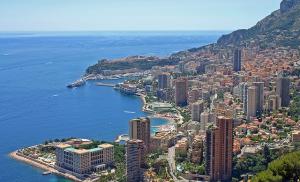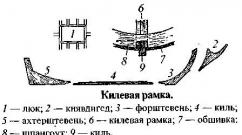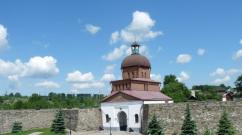Is it possible to get to Great Britain by train? What is the best and cheapest way to get to London? Overview of options
The fastest and cheap way to get to England - by plane. There are direct regular flights to London from Moscow, St. Petersburg and Yekaterinburg. The most options are from the capital, from where 3 airlines fly to London: Aeroflot, Transaero and British Airways. Lufthansa, Air France and Swissair offer connections in Frankfurt, Paris and Zurich. Aeroflot and British Airways fly from Sheremetyevo to Heathrow several times a day, Transaero flies from Domodedovo to Gatwick, but not every day. You will have to spend 3.5-4 hours in the air. British Airways (to Heathrow) 5 times a week and Pulkovo Airlines (to Heathrow or Gatwick, depending on the day of the week) fly from St. Petersburg to London. British Airways flies from Yekaterinburg to London 3 times a week. Even if there are direct flights to London, you can also fly there on other airlines, but with a transfer - in Warsaw, Budapest, Prague, etc. Such flights lengthen travel time, but tickets are sometimes cheaper.
As you would expect from such a small and densely populated country, almost anywhere in England can be reached by train or bus. However, travel costs are the highest in Europe. London commuters using season or concession passes spend more money on travel to work than in any other country in Europe. Moving from one part of the country to another can eat up the lion's share of your budget. It is prudent to think through all routes in advance, collecting all the information about discounts and special offers– please note that some of them can only be obtained outside of England, and therefore before departure.
It is often cheaper to travel around England by car (of course, if you have someone to share the costs with), although prices for gasoline and car rental are the highest in Europe. Around major cities Huge congestion occurs, and even on motorways (the infamous M25, London ring road) there are often traffic jams, especially in holidays, when it seems that almost the entire city has hit the road. Given the congestion on the roads, cycling may not seem like the most reliable (or safest) way to get around, but many tourists still bring bicycles with them or rent them upon arrival. The country has a whole network of bicycle roads, free from other modes of transport.
British network railways experienced reckless privatization, which led to a sharp decline in service levels. Continuous maintenance of rolling stock and speed restrictions still affect the official timetable, and you can read endless stories in the newspapers about travel delays.
However, in fairness, it must be said that there are few large cities in England that cannot be reached by train, and high-speed trains run on the main routes - for example, from London to York, or you can get there in 2 hours. On the other hand, traveling across the country can take a very long time and often involves several transfers.
In any case, the most important information about train timetables and routes throughout England can be obtained from the National Rail Network information service. Credit card bookings can be made through the companies themselves (National Rail information will give you a specific name and number) or online.
Given the huge variety of options, it is almost impossible to give clear advice on ticket types and prices. We can only say that the earlier you book your ticket, the cheaper it will be. The most expensive trip will be on Friday or when purchasing a ticket at the station right before the trip. Different train companies have different names for different tickets - all with certain restrictions and rules (for example, it is often cheaper to travel from the northern part of the country to than vice versa).
The most cheap tickets you have to order 14 or 7 days in advance, and since they are limited in quantity, they sell out very quickly. Usually the ticket price includes a seat reservation, but always check, because otherwise you risk ending up in the corridor next to the toilet.
To give an idea of the difference in price, take London-London as an example: an “open” round-trip ticket (that is, not limited in terms of travel) can cost from £175 and up. If you're traveling outside of rush hour and comply with some restrictions, the price of a ticket drops to around £50, and if you book it two weeks in advance (no exchange or refund), you can reduce the price to £20.
Children from 5 to 15 years old inclusive in most cases pay 50% of the price of an adult ticket, but they usually do not receive advance sale discounts. Children under 5 years old travel free of charge, but they are not entitled to a separate seat. On weekends and holidays for many long haul flights You will be offered an additional £5-15 to purchase a 1st class ticket - which is very reasonable considering the prospect of a five-hour ride on a crowded train. If the station is closed or there is no ticket machine, you can buy a ticket on the train. In other cases, you will have to pay the full cost of travel to your destination.
Railway passes in England
Foreigners planning to travel great trip In England, you must buy a railway ticket. This could be BritRail or Eurail, but in either case the ticket must be purchased before entering the country. Any good travel agency will provide you with up-to-date information, or look online.
The BritRail Classic Pass, which offers unlimited travel within England, Scotland and Wales, comes in first and second class and is valid for 4 days ($285/189), 8 days ($405/269), 15 days ($609/405 ), 22 days ($769/515) or 1 month ($915/609). There is also a Youth Pass (2nd class only) and a Seniors pass (1st class only) which are 30-50% cheaper than classic rail passes.
In addition, you can buy a range of other UK travel passes, including the Flexi-Pass (for travel on specific dates), the Family Pass, the Party Pass (for a group of three to four adults), and the Pass'n' Drive (train travel plus car rental). Particularly convenient for visitors to London is the London Visitor Travelcard ($32 for 3 days, $43 for 4 days, $64 for a week), which entitles you to unlimited bus and subway travel in the capital, including travel from Heathrow Airport. About what travel tickets Available to buy locally in the UK, listed below.
If you plan to travel a lot by train, it makes sense to buy a Eurail ticket, which allows you to travel unlimitedly within the UK and sixteen other countries, but it won't be worth it if you limit yourself to just England. Eurail Youthpass (for youth under 26) costs $414 for 15 days, $534 for 21 days or $664 for a month.
If you are over 26 years old, you can buy a first class Eurail ticket, which comes in three types: 15 days ($588), 21 days ($762) and one month ($946). Tickets for two and three months are also available. Perhaps a more economical option would be the Eurail Flexipass, which is valid for a certain number of days over a two-month period. This ticket also comes in two types – for youth under 26 years of age and first class: for 10 days it costs $488/694 respectively, for 15 days – $642/914.
Rail passes in the UK
Some travel tickets can only be purchased directly within the UK. These include the Young Person's Railcard (£20) for full-time students and those aged 16 to 25, and the Senior Citizens' Rail Card for people over 60 (£20). Both of these tickets offer up to a third off the full fare.
Families can take advantage of the Family Railcard (£20), which covers four adults and four children and entitles 33% discount for adults and 60% discount for children. Tickets can be purchased at train stations - take with you two passport-size photographs and an ID confirming your age or status.

Intercity buses in England
Buses long distance duplicate many railway routes and often cost half as much as a train. Between cities there is good bus service, and the buses themselves are very comfortable. Long-distance buses often offer drinks and sandwiches. The largest transport company is National Express, whose network of routes covers even the most remote corners of England.
On busy routes, as well as on weekends and holidays, it is recommended to book tickets in advance. Full-time students - British citizens, as well as those under 25 and over 50 years of age can buy a discount card (National Express Discount Coach Card; £10 for one year, £19 for three), which entitles you to a 30% discount.
Everyone else, including foreign tourists of any age, can buy a Tourist Trail Pass. It grants its owner unlimited travel on National Express coaches for two days out of three (£49), five out of thirty (£85), eight out of thirty (£135), fifteen out of thirty (£190) or fifteen out of sixty ( £205).
At the same time, holders of the Discount Coach Card and those who purchased the Tourist Trail Pass outside the UK enjoy a 20% discount. In England, you can buy travel tickets from major travel agencies, at Gatwick and Heathrow airports or from National Express ticket offices. Outside the UK, contact either National Express or a specialist travel agency.
Local routes are served by a variety of bus companies. In many cases, schedules and routes are well coordinated. But increasingly, private companies are duplicating the busiest routes in an attempt to undercut competitors, leaving more remote areas unserved.
For example, if you want to get from one end of a large English city in another, you'll probably have a wide choice of buses, but to get into the suburbs or the next village you may have to wait several hours. As a rule, the further you are from the city, the less frequent the buses and the more expensive the tickets. But there are very few areas where at least private minibuses go.
In summer many national parks on weekends and holidays they organize their own bus routes that transport visitors to scenic spots, villages, to the beginnings hiking trails and other remote areas.
In addition, many rural areas not covered by other species public transport, are served by the Postbus network, which connects minibuses carrying mail and up to eight passengers. They depart in the morning - usually around 8.00 from the main post office - and deliver mail to remote areas. It's a convenient and inexpensive way to get around (£2-4 per trip) for those looking to get off the beaten track, although it can often be painfully slow.
Bus tours in England
Youth and thrifty tourists They often travel around England in Stray Travel minibuses, which you can board (and get off) at any point along the route. This way, you get the opportunity to travel with like-minded people and see new places off the beaten path. The bus winds its way around England (as well as Wales and Scotland), calling in Windsor, Bath, the Lake District and , before heading back to the capital.
You can book accommodation yourself or ask Stray Travel to do it for you - in any case, you will have a pleasant and economical trip. For tourists with similar requests, Road Trip offers inexpensive bus tours, although on their routes you cannot arbitrarily join the excursion. If you want something more comfortable, take a look at guided bus tours (mainly aimed at older people): any central travel agency will offer you brochures and recommend routes.

By car in England
To drive in England you need a valid driving license. If you bring your car into the country, you must have a registration certificate and a document of ownership with you. In addition, insurance will be required. In England, driving is on the left - this circumstance can cause a lot of trouble for foreign drivers in the first days after arrival. Motorways - roads with the letter "M" - and main roads ("A") consist of 4-6 lanes, but you can still expect traffic jams during peak hours and holidays. In rural areas (“B” and secondary roads), traffic sometimes moves only in one lane.
Therefore, you should drive carefully, especially considering that local drivers know this road well and are not prepared for surprises. Don't underestimate the English weather either - snow, ice, fog and wind wreak havoc every year and conditions on highways, as well as in rural areas, can deteriorate in a matter of hours. Local radio stations and national Radio 5 provide regular traffic updates.
Speeds are limited to 50-65 kilometers per hour in built-up areas, 110 kilometers per hour on motorways and dual carriageways (motorways), and 80 kilometers per hour on most other roads. As a rule, in all places with street lighting, the permitted speed is reduced to 50 kilometers per hour, unless otherwise specified.
The British for a long time resisted the introduction toll roads(with the exception of a couple of minor cases), however, to date in London and other major cities A tax is charged for entry into central areas. Fuel is expensive, with unleaded petrol and diesel costing over £1 per litre. The most low prices- in suburban supermarkets, and the highest - at service stations on motorways.
The AA (Automobile Association), RAC (Royal Automobile Club) and Green Flag offer motorists 24-hour technical assistance, as well as other services (including a useful online route planner). Some tourists are entitled to free servicing through reciprocal agreements with foreign motoring organizations - check with your association before departure. If you are not a member of these organizations, you can use their services, but then you will be asked to join urgently and will be charged a hefty amount for it.
Parking in cities and popular tourist areas can be a nightmare and often costs a fortune. If you're only staying in the city for a day, look for a park-and-ride parking lot on the outskirts where you can leave your car and take the bus into the city center. Long-term or short-term parking in parking lots will be cheaper than using street meters, which limit parking time to 2-3 hours. As a rule, than smaller city, the cheaper the parking.
Some cities have free parking in the city center where you can leave your car for a limited time. If this is indicated on road signs, then you need to buy a special cardboard disc from any local store and place it under the windshield. A yellow line along the edge of the road means that parking restrictions are in effect: conditions are indicated on the nearest sign. A double yellow line means that parking is prohibited, but you can make a short stop (no longer than two minutes) to drop off or pick up passengers or load items. But if the lines are red, then you can't stop here at all.
Car rental in England
Compared to other countries, car rental in England is expensive. It may be cheaper to book a car from home, through an international rental office. If you rent a car in , it will cost you a minimum of £30 for one day, £50 for a weekend or from £150 for a week. It's true that easyCar (offices in London, Manchester, Liverpool, etc.) offers cars for around £10 per day, but this requires booking well in advance of your trip, and be prepared to pay extra if the company thinks you've returned the car in an unacceptable condition.
When booking a car through one of the international companies, expect approximately £35-40 per day; a local company may be £10 cheaper. Rental companies prefer payment credit cards and on top of that they require a deposit of £100 or more. There are very few cars with an automatic transmission at the lower end of the price range, and if you want one, it's best to order early. A driver with less than one year of experience is unlikely to be hired to rent a car: most companies prefer clients between the ages of 21 and 75.
For caravan rentals, contact Just Go, which provides quality vehicles that sleep 4-6 people and are equipped with audio and video equipment, bathrooms and kitchens, and bike racks. Prices range from £450 to £850 per week, depending on the type of car and season.
Taxi in England
Only rich tourists can afford to take a taxi all the time, especially in London, but sometimes a taxi is indispensable, for example when you are in a hurry to get to neighboring city. It is advisable to take a taxi for several people - in this case the trip is no more expensive than by bus.
In rural areas a taxi costs around £1.5 per mile. In cities, prices are higher when traveling short distances, although they differ markedly in different regions of England: in Manchester or getting home by taxi is much less expensive than in London.
The famous "black cabs" are usually slightly more expensive than mini-taxies, but are generally more reliable (London taxi drivers are required to know the location of all streets in the capital, otherwise they will not be hired). Black cabs can be hailed on the street, but mini-taxi can only be ordered by phone.
" - flight SU 2578 daily, flight SU 2584 daily, except Monday, Saturday to Heathrow airport (London);
- British Airways - three flights a day daily to Heathrow (London);
- easyJet - one flight daily to Gatwick Airport (London).
Important! easyJet airline stops flights to Moscow from London from March 21, 2016 ( last flight will take place on March 20, 2016).
From St. Petersburg:
- British Airways - one flight daily, Heathrow (London);
- Rossiya flies to London from St. Petersburg two or three times a week.
From the Baltics and Poland:
- easyJet - flights to London from Tallinn; from Krakow to Belfast, Bristol, Edinburgh, Liverpool, London;
- Ryanair flies from Riga and Tampere to London; from Krakow to Birmingham, East Midlands, Leeds, Liverpool, London, Manchester, Edinburgh; from Kaunas to Birmingham, Bristol, London, Edinburgh; from Warsaw to Bristol, East Midlands, Liverpool, London, Glasgow;
- airBaltic from Riga to London.
From Kazakhstan:
Air Astana from Astana to London.
To the UK by train
There is no direct train from Russia; you can get there with one change in Brussels or Paris by high speed train Eurostar traveling through the Channel Tunnel. Travel time from Moscow is 43 hours, tickets will be more expensive than air tickets. At the same time, a single Moscow-London ticket is not sold, so you should separately buy a Eurostar ticket from Brussels to London, or Paris to London, respectively. Tickets are sold on the Eurostar website (www.eurostar.com), the average cost is from 120 euros one way, however, if purchased long in advance (a month or more), you can buy a ticket for 60 and sometimes even 40 euros. British immigration control is carried out before the train departs from Paris and Brussels, right at the railway stations (Brussels and Paris, respectively), and therefore you must arrive at the station at least an hour before the train departs. All border formalities are carried out at the station according to the usual procedure, just like at the airport, so you must have all the required documents with you (return tickets, hotel reservations, etc.).
To the UK by ferry
There are numerous regular ferries operating to the UK from France, Belgium, the Netherlands, Norway, Denmark and Sweden, with up to 50 ferries per day. The ferry is by far the cheapest way to get to the UK from mainland Europe, the cost of ferrying one passenger from Calais (France) to Dover (UK) is from 12 euros one way (and the cheapest fare can be either if purchased well in advance of departure, or directly on the day of departure). Travel time is about two hours. You should arrive at the port at least an hour and a half before the ferry departure, since passport and border control of France (for departure) and Great Britain (for entry) is carried out on French territory. After passing control, passengers board a bus, which takes them through the closed port area directly to the ship. There will be no other passport controls on arrival in the UK.
To the UK by car
Distance from London by road (excluding ferry crossing): Moscow - 3090 kilometers, Paris - 415 kilometers, Brussels - 235 kilometers, Amsterdam - 190 kilometers, Berlin - 865 kilometers.
From the territory of Russia you can get there by routes from Moscow and St. Petersburg. Unfortunately, there are no direct flights from other cities.
👁 Before we start...where to book a hotel? In the world, not only Booking exists (🙈 for a high percentage from hotels - we pay!). I've been using Rumguru for a long time
skyscanner
👁 And finally, the main thing. How to go on a trip without any hassle? The answer is in the search form below! Buy now. This is the kind of thing that includes flights, accommodation, meals and a bunch of other goodies for good money 💰💰 Form - below!.
A country with such a sonorous name attracts the attention of businessmen, financiers, representatives of science and culture and, of course, tourists. Great Britain is one of the largest financial centers on the planet; millions of people visit it every year for various purposes. You can get there by water, land and air.
Air service
From the territory of Russia you can get there by routes from Moscow and St. Petersburg. Unfortunately, there are no direct flights from other cities. From the capital of the Russian Federation there is communication with London and Manchester, and from northern Palmyra only with London. British Airways and Aeroflot flights depart from Moscow twice a day, ending in London. Transaero operates one flight per day. Flights to Manchester are carried out once a week. You can fly to Edinburgh via London on the same airline once a week.
Air bridges from St. Petersburg are established by British Airways and Pulkovo. The British company operates flights daily, and the Russian company twice a week.
From the territory of Ukraine by air to Foggy Albion You can only get from Kyiv to London. British Airways operates daily flights landing at Heathrow, UIA planes also fly daily landing at Gatwick Airport, and Luton Airport receives WizzAir flights twice a week (Monday and Friday).
By indirect flights you can fly to London via Riga and Tampere, to London, Birmingham and Edinburgh via Kaunas, to London, Liverpool and Glasgow via Warsaw, to London, Manchester, Liverpool and Edinburgh via Krakow. All flights are operated by Ryanair. There is also an airBaltic flight from the capital of Latvia to London. From the capital of Kazakhstan, Air Astana has laid a route to London.
- It will be useful: air tickets to the UK.
Railway connection
There is no direct connection with the British Isles from Russia and Ukraine; it is necessary to change trains. The transfer takes place in Warsaw, Brussels, Paris and other cities. This route has several unpleasant features. It is preferred by travelers who want to quickly explore Europe while on the road. It’s easier and cheaper to fly by plane.
Firstly, the journey from Moscow will take almost two days. Secondly, there is no single ticket for the trip and you need to select a transfer and book tickets in advance. Thirdly, you need to travel through the Channel Tunnel on the Eurostar train, and its tickets are not exactly cheap. The cost of a ticket in a Standard class carriage reaches 200 euros per person, Premier class - up to 260 euros, business class - 330 euros. Finally, the last disadvantage is the need to go through customs directly at the departure stations. Due to the influx of migrants and the attendant confusion, this may take a long time.
Road transport
London is separated from Moscow by more than three thousand kilometers. There is no point in talking about all possible routes; it is only necessary to mention the passage through the Channel Tunnel. This service is not cheap, starting from £49. On the English side, travelers arrive in the town of Folkestone, after which they turn onto the M20, which leads to London. You can make it cheaper to cross the English Channel by taking a ferry.
Ferry service
As you know, Great Britain is an island, and you can get there by ferry. This is the most economical option. Ferries depart from ports in Sweden, Denmark, the Netherlands, Belgium, France and Norway, and are subject to British entry customs controls. For example, from the port of Calais in France you can get to Britain in just two hours, it costs 12 euros per person.
Of course, Great Britain is a “tidbit” for tourists. It's very beautiful architecture different eras, wonderful souvenirs and shopping, the calm silence of the moors, accompanied by stories about the Hound of the Baskervilles and many other interesting things. You can get there in different ways, but to enter the island you need a visa, and Schengen is not suitable for this purpose.
It will be necessary: air tickets to the UK.
👁 Do we book the hotel through Booking as always? In the world, not only Booking exists (🙈 for a high percentage from hotels - we pay!). I’ve been using Rumguru for a long time, it’s really more profitable 💰💰 than Booking.
👁 And for tickets, go to air sales, as an option. It has been known about him for a long time 🐷. But there is a better search engine - Skyscanner - there are more flights, lower prices! 🔥🔥.
👁 And finally, the main thing. How to go on a trip without any hassle? Buy now. This is the kind of thing that includes flights, accommodation, meals and a bunch of other goodies for good money 💰💰.
From Russia and Ukraine, the CIS countries, other countries in Europe and the world, you can use various modes of transport, including: plane, train, bus, car, ferry. Below detailed information for each type of transport, which will help you get to England on your own.
Airplane
England is popular destination tourists, so there are direct flights here from most countries of the world. The majority of international flights are received by 4 airports related to London: Heathrow - 25 km west of London, Gatwick - 45 km south of London, Stansted - 50 km northeast of London, and Luton - 50 km north of London.
In addition to London, major international airports are located in - Manchester International Airport - 14 km south-west of the city center, in Birmingham - Birmingham International Airport - 10 km from the city center, in Liverpool - Liverpool International Airport - 12 km south-east of city center, in Leeds - Leeds Bradford International Airport - 11 km northwest of the city center, in Newcastle upon Tyne - Newcastle International Airport - 11 km northwest of the city center.
From Moscow to London there are direct flights from British Airways, Aeroflot, S7, travel time is 4 hours, with a ticket price from 180 GBP. British Airways flies from St. Petersburg to London; travel time is 3 hours 30 minutes, with a ticket price starting from 130 GBP. British Airways, UIA, and Wizz Air fly from Kyiv to London; the flight duration is 3 hours 30 minutes, with a ticket price starting from 63 GBP. Belavia flies from Minsk to London, the journey takes 3 hours 10 minutes, with a ticket price starting from 103 GBP. Air Moldova flies from Chisinau to London (the flight lasts 3 hours 20 minutes, and the ticket costs from 97 GBP). Air Astana flies from Astana to London, the flight is 7 hours, with a ticket price from 350 GBP. Uzbekistan Airways flies from Tashkent to London, flight duration is 7 hours 40 minutes, with a ticket price from 312 GBP.
More cheap flights possible with connections in Riga (Air Baltic), Prague (CSA Czech Airlines" and "Smart Wings"), Brussels (" Brussels Airlines"), Helsinki ("Finnair"), Istanbul (" Turkish Airlines" and "Pegasus Airlines"), Vilnius ("Wizz Air") - from 60 GBP.
You can get cheaply from the airport of any city in England using specialized shuttle buses from the Terravision company.
Train
A trip from Paris (France) to London takes from 7 hours, with a ticket price from 15 GBP. You can get from Brussels (Belgium) to London in 6-7 hours, paying 10 GBP for a ticket. From Amsterdam (Netherlands) to London, the journey takes 10 hours, and a ticket costs from 20 GBP. You can get from Edinburgh (Scotland) to London in 8-9 hours, with a ticket price starting from 14 GBP. A bus travels from Cardiff (Wales) to London in 4 hours, and a ticket costs from 5 GBP.
There are no direct bus flights from Russia to England, but if you want to travel by bus, you should expect to spend more than two days on wheels and make at least three transfers to European cities(Riga, Warsaw, Paris), and such a trip will cost about 150 GBP. From Kyiv (via Zhitomir, Rivne, Lviv), some carriers operate flights to London in transit through Poland, Germany and France - such a trip lasts more than two days, with a ticket price of 80-100 GBP.
Automobile
It is convenient to get to England by car from neighboring Scotland and Wales, as well as through the English Channel via the Eurotunnel or by ferry from mainland Europe. A trip to England by car from Moscow takes approximately 30-35 hours (3000 km), transiting through Belarus, Poland, Germany, the Netherlands, Belgium, France. To travel by car, you need to have an international driving license and insurance, which will also be needed to rent a car.
Plan car route You can travel to England along European roads on the Via Micheline website.
Water transport
You can get to England by ferry via the English Channel or the North Sea. Basic sea ports servicing passengers, located in the cities: Portsmouth, Dover (Dover) , Plymouth, Hull (Hull) , Liverpool, Newcastle upon Tyne, Southampton, Poole (Poole). One of the most popular is the cross-Channel flight from France: Calais (Calais) – Dover, lasting 30 minutes, costs from 20 GBP. In addition to France, you can travel to England by ferry from Spain, Ireland, the Netherlands, Belgium, Northern Ireland, Isle of Man and other islands. Main carriers: P&O Ferries, DFDS, Stena Line, Brittany Ferries, Irish Ferries.
You can select the required flight and view the schedule on the website













